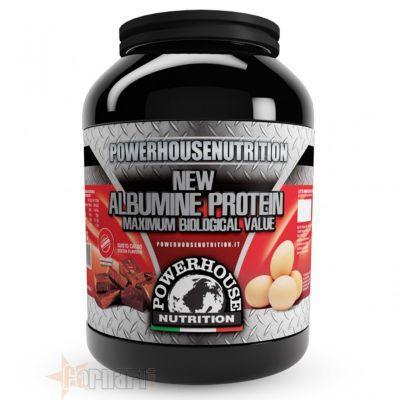
Introduction
In 100 g of eggs we find about 12 and a half grams of protein; considering that a medium-sized egg weighs about 60 grams, for each egg consumed we provide the body with about 7 and a half grams of protein. Although eggs are an excellent source of protein, many people are scared of their high fat and cholesterol content.
The protein content is distributed more or less equally in the yolk and in the albumen (slightly prevails in the latter), while fats and cholesterol are contained exclusively in the yolk. Liquid egg whites - fresh, pasteurized or freeze-dried - therefore represent an excellent solution for those who want to increase the protein intake of their diet without introducing excess lipids. The same goes for egg protein powder, to which the great advantage of practicality is added.
Albumin
In the field of food supplementation, ovalbumin represent the traditional alternative to whey proteins. The biological value and protein efficiency are in fact similar, as are the other protein quality indices. Egg white proteins have a slightly salty taste, while whey proteins benefit from a milder flavor and slightly lower cost. Egg white proteins, on the other hand, are the ideal choice for all those athletes who do not tolerate dairy products. Compared to plant sources, egg albumin has a better amino acid profile, because it is characterized by an excellent balance between the various essential amino acids. The digestion times of egg proteins are intermediate between the fastest whey proteins and the slowest caseins; consequently they possess an excellent satiating power.
In-depth articles
Nutritional values whey protein powder |
Nutritional values egg white protein powder |
||||
| 100g | 30g | 100g | 30g | ||
Energy value |
392 Kcal | 117,6 Kcal | Energy value |
380,9 Kcal | 114,27 Kcal |
|
1646 Kj | 493,8 Kj |
|
1600 Kj | 480 Kj |
Protein |
80 g | 24 g | Protein |
80,9 g | 24,27 g |
Carbohydrates |
6,6 g | 2 g | Carbohydrates |
1 g | 0,3g |
Grassi |
5,1 g | 1,53 g | Grassi |
5 g | 1,5 g |
|
|
||||||||||||||||||||||||||||||||||||||||||||||||||||||||||||||||||||||||||||||||||||||||||||||||||||||||||||||||||||||||


























